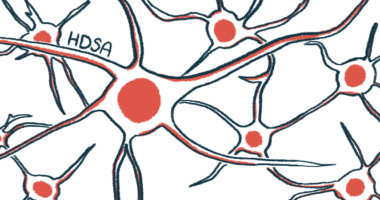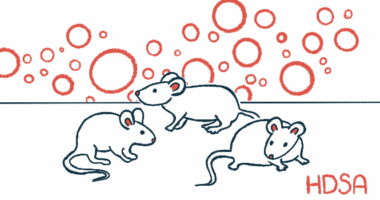Writing My Thoughts About Huntington’s Disease Is Cathartic

I am amazed at the differences in the ways our brains work and the variations that exist in our thought processes. My roommate and I were discussing this subject, and she told me that she thinks in pictures. My thoughts, on the other hand, manifest as words. Sometimes, I’ll have a movie running inside my head, but for the most part, it’s filled with chaotic sentences.
I process my thoughts most efficiently by speaking them aloud. Sometimes, I call my mom to talk things out because it helps me to organize the millions of thoughts whirling around inside my head. However, I am inclined to stay away from difficult topics, and getting me to talk about emotional issues is nearly impossible.
In my previous column, I shared how I tend to avoid thinking of things that make me sad. When people ask if everything’s all right with me, I don’t lie and say that I’m OK, but I don’t explain what’s wrong, either.
That’s where writing comes in. I find it cathartic to chat to someone via a text messaging app or write a column about whatever is bothering me. While it can take me a while to organize my thoughts, expressing them is a significant step toward working through my feelings.
One day, I shared in class that I was a gene carrier for Huntington’s, and afterward, I was emotionally exhausted. I had started seeing someone romantically. We were instant messaging each other and he asked me if anything was wrong. I found it easier to open up to him because of the screen between us. He was there for me, though he wasn’t physically present.
I often read articles claiming that young people are incapable of having tough conversations or dealing with their emotions face to face. They say that older generations confronted painful subjects — but my mother and others have told me that is false.
When she was younger, Huntington’s wasn’t openly discussed in public or within her family. While her family was aware of its existence, and how the disease affected them, they didn’t disclose their feelings about it. She wanted things to be different for me, so she made sure that we have an open dialogue. Still, despite our closeness, writing out my feelings about Huntington’s can be less emotionally challenging for me.
***
Note: Huntington’s Disease News is strictly a news and information website about the disease. It does not provide medical advice, diagnosis, or treatment. This content is not intended to be a substitute for professional medical advice, diagnosis, or treatment. Always seek the advice of your physician or other qualified health provider with any questions you may have regarding a medical condition. Never disregard professional medical advice or delay in seeking it because of something you have read on this website. The opinions expressed in this column are not those of Huntington’s Disease News or its parent company, Bionews Services, and are intended to spark discussion about issues pertaining to Huntington’s disease.







Leave a comment
Fill in the required fields to post. Your email address will not be published.